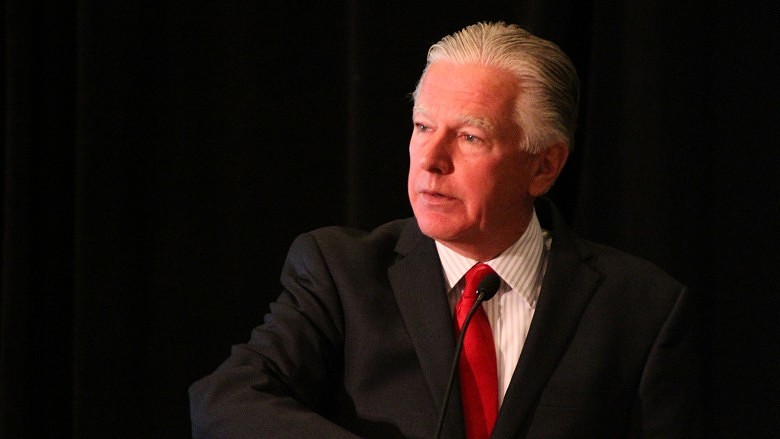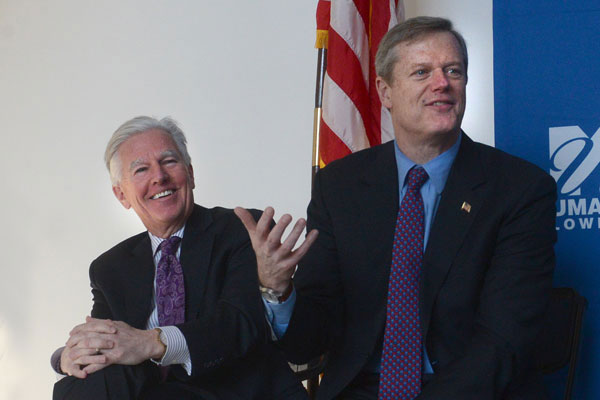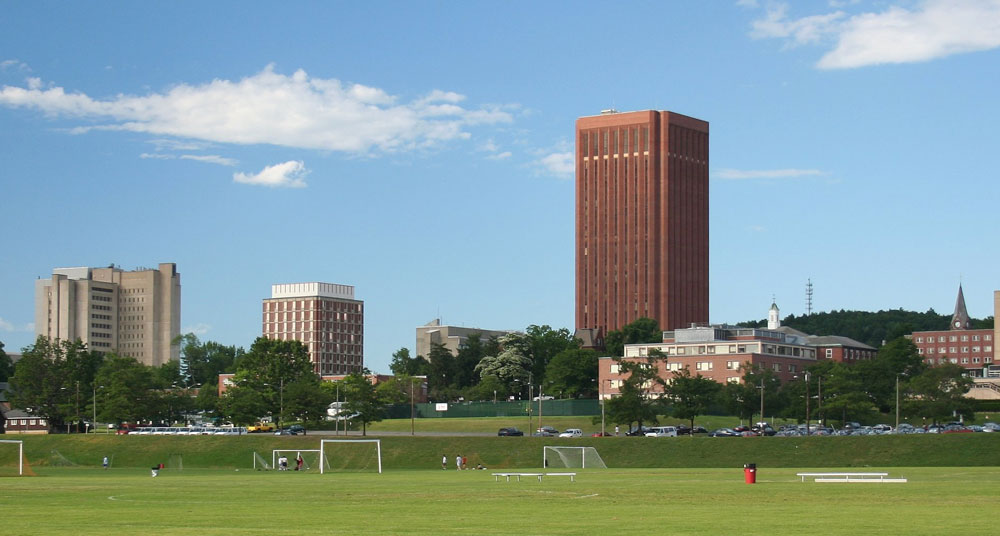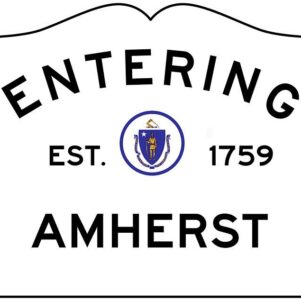Homegrown: Meehan committed to UMass for the long haul
By Evan Lips | November 12, 2015, 10:50 EST
 UMass President Marty Meehan speaks in Boston on Tuesday, Nov. 10, 2015, about the transformation of higher education at an event sponsored by the Cristo Rey High School of Boston. (Evan Lips, NewBostonPost)
UMass President Marty Meehan speaks in Boston on Tuesday, Nov. 10, 2015, about the transformation of higher education at an event sponsored by the Cristo Rey High School of Boston. (Evan Lips, NewBostonPost) BOSTON — The University of Massachusetts might be going places, but Marty Meehan, the former congressman from Lowell who will be sworn in Thursday as the University’s 27th president, is staying put.
“You can’t have transformational change in just two or three years,” Meehan said in an interview last month at the University’s Franklin Street offices. “This job requires a 10-year commitment.”
Meehan isn’t going anywhere anytime soon.
In July, Meehan, who served for eight years as the Chancellor of UMass-Lowell, took the reins of the five-campus system that includes campuses in Amherst, Boston, Dartmouth, and Lowell, as well as the medical school in Worcester.
On Tuesday, in anticipation of his official inauguration, Meehan gave a major address at an event sponsored by the Cristo Rey High School in Boston about the transformation of higher education. Meehan laid out his vision for the UMass system’s immediate future and said one of his biggest goals is to increase the University’s endowment to $1 billion within four years. As of June 30, the system’s endowment stood at $768 million. He said Tuesday that he is “using the inauguration as a fundraiser,” and that it has already netted about $1.6 million to be put toward student aid.
Made in the Mill City
For Meehan, who is now 58 years old, being named chancellor of the University of Massachusetts-Lowell in 2007 was a homecoming. Meehan was born in the fading textile city in 1956 and was raised in a southside home on London Street. He graduated from the school — then known as the University of Lowell — in 1978. It joined the UMass system and became UMass-Lowell in 1991.
In 1981, Meehan earned a master’s degree in public administration from Suffolk University in Boston and earned a law degree there in 1986. During this time, and after, he served in various government positions, such as deputy secretary of the commonwealth for securities and corporations and first assistant district attorney in Middlesex County. He was first elected to the U.S. House of Representatives in 1992.
Meehan said his upbringing set him on the course he has followed. One of seven children, Meehan’s parents hadn’t gone to college but highly valued books and learning.
His father, Martin T. Meehan, “worked pretty hard,” Meehan said. Known as “Buster,” he held down two jobs at once, often laboring from 7 a.m. until midnight.
“He worked full time for 43 years in the Lowell Sun compositor room,” Meehan said. His father spent his days setting type from 7 a.m. until 3:30 p.m. for the Merrimack Valley afternoon broadsheet. A half-hour later, he’d punch in for the second shift at the Billerica House of Corrections.
Yet despite those 17-hour days, Buster found time to read, voraciously.
“There were books literally everywhere in our house,” Meehan said. “My dad was very well-read. I think that was an influence. He was self-educated, in a way. And he was never involved in politics but always paid attention. I remember as a kid, when John F. Kennedy came on television, everything stopped in our house.”
Meehan said Buster’s work in the newspaper business also made a lasting impression. At 16, his father helped him land a part-time newsroom job answering phones and writing obituaries. Meehan recalled “rolling tapes” for editors looking for stories from the newswires.
Decades later, during the search process for the next UMass president, Meehan recalled that a trustee remarked on how Meehan seemed to have a deft touch with journalists.
“I’m convinced the reason is that I had that experience at a newspaper,” Meehan said.
Paying his way
Meehan’s assortment of part-time and summer jobs, such as his stint at the Sun, helped him pay for his education.
He acknowledged that’s no longer an option for the most students. Asked how the price of a college education, even at a public university, ballooned to the point where most graduates now carry a mountain of debt, the usually loquacious Meehan seems to search for words.
“I can’t think of one thing that’s responsible for that,” he said after a few moments of thought. “I’m not sure how we got here, but if you look over the last three decades and factor inflation into the cost of a UMass education, you’ll find it has stayed about the same, but the shift has been in who pays for it.”
In 1978, when Meehan graduated from college, the state subsidized 88 percent of the cost of attending UMass. That proportion has shrunk to around 24 percent today. Earlier this month, at a reception in Springfield held in his honor, Meehan pledged to work towards stalling that spiraling expense, according to The Springfield Republican.
One of the greatest challenges is timing.
“We set tuition and fees before knowing how much the state is going to give us in our budget,” Meehan told the NewBostonPost. “Knowing ahead of time would help.”
Another challenge stems from the way that salaries are set for UMass workers. Pay for university employees, Meehan explained, is negotiated with unions by the state Executive Office for Administration and Finance. Essentially, that means salary increases can be negotiated without any input from university officials.
Under Gov. Deval Patrick, a Democrat, A&F negotiated annual pay increases of 3.5 percent. The raises will continue for eight years. The deal has left Meehan in a hole.
“He didn’t fund it,” Meehan said about Patrick and the new contract struck by his administration. “If we don’t have the ability to negotiate, and the state won’t pay for what it negotiated, then I’m sorry but that’s not a good model.”
Paying for the hikes has presented Meehan with a new challenge. After lawmakers in the state House of Representatives agreed to fund the raises, leaders in the Senate disagreed, leaving the system’s new chief with a $10.9 million budget gap for the current year. Meehan had approved the increases, including retroactive payments, in September, after the House passed a measure to fund the raises. The money had previously been withheld as unaffordable by Robert Caret, Meehan’s predecessor.
Whether the state will deliver the financing or Meehan and the campuses will have to find ways to cut costs remains to be seen. As of now, Meehan is left holding the bag, having promised the previously bargained salary increases.
Meehan said he thinks Gov. Charlie Baker, a Republican elected last year, is “open” to change and to transferring the power to negotiate wages in the system to school administrators.
“But you don’t change universities overnight,” Meehan said. “I want to first establish a list of best practices.”
A win for transparency
But Meehan has already facilitated one significant change; tuition retention for the five campuses, which will create greater transparency in billing.

Then chancellor at UMass-Lowell, Marty Meehan and Gov. Charlie Baker announce a $4 million state grant to fund the new Printed Electronics Research Collaborative at the Saab Center. (www.uml.edu)
Currently, UMass is not allowed to keep tuition revenue paid by in-state students. That money is returned to the state, which then provides the University with some degree of funding. Partly because of that revenue diversion, UMass has often raised fees — which the campuses are allowed to keep — to help cover budget gaps. That situation has led to annual fee hikes of varying degrees, creating an unpredictable burden for students.
The trend of rising fees had long troubled Meehan, who last year penned in an op-ed article for The Boston Globe explaining the problem. In the piece, Meehan recalled that in 2005, students who qualified for Adams Scholarships covering their in-state tuition costs would still be on the hook for about four times that amount in mandatory fees. In the 2005-2006 academic year, tuition for in-state students came to $1,669 while fees amounted to $6,755.
“In late 2005, ‘tuition’ accounted for roughly one-fifth of a Bay State resident’s cost of attending a public college or university in Massachusetts,” Meehan wrote. “Today it’s about one-eighth. ‘Mandatory fees’ account for the rest. That’s just tuition by another name.”
A little less than a month after Meehan took over the top job, state lawmakers and Baker agreed to give UMass some much-needed tuition and fee transparency.
Beginning with the 2016-2017 academic year, UMass will retain for the first time all tuition revenue paid by in-state students instead of sending that money back to the state.
Under the new tuition-retention policy, each of the five campuses — Amherst, Boston, Dartmouth, Lowell, and the medical school in Worcester — will keep tuition payments as well as fee revenue. No concomitant reduction in state support is anticipated. This might curb fee increases, but will at least provide students and families with greater transparency.
The tuition problem, however, probably won’t be solved in a year. As Meehan moved into the president’s post, tuition costs for the current academic year were slated to go up 5 percent. In-state resident students at the flagship Amherst campus are paying $25,674 in tuition, fees and room-and-board this year compared to $24,215 last year.
University officials estimate that the revenue retention policy will deliver $30 million to $35 million to the system next year that would have gone to the state.
Retaining tuition revenue was among Meehan’s earliest objectives as he took the new job.
“That was my priority, right out of the box,” Meehan said.
Look west
As the system’s new boss, Meehan has had to deal with perceived tensions that have simmered over the years between the flagship Amherst campus and the other four and with concerns on other campuses that as a former Lowell chancellor and graduate, he would favor his alma mater.
“What I advocate to the folks at Amherst is don’t be looking in the rearview mirror at what campuses in Lowell or Boston or Dartmouth are doing,” Meehan said. “Be looking west at Berkeley, be looking to the great public universities in this country, be looking at what they are doing.”
Meehan’s fondness for the University of California, Berkeley is understandable. In September, U.S. News & World Report magazine ranked the school as the country’s top public university. Meehan has lofty ambitions. He believes UMass-Amherst will someday compete for that ranking.
Meehan’s track record over eight years at UMass-Lowell suggests the system’s flagship school in Amherst will be challenging other public universities for top honors sooner than later.
U.S. News listed UMass-Lowell as the third-fastest among universities that are rising in its rankings over the past five years. Since 2007, when he became chancellor of UMass-Lowell, operating revenue has doubled at the campus. The boost helped eliminate what the school described as a “structural budget deficit.”
Current UMass-Lowell Chancellor Jacquie Moloney credits Meehan for the school’s recent gains. Moloney, who served alongside Meehan as executive vice chancellor for eight years, described his impact as “indelible.”
“Because of his vision and dedication, UMass-Lowell has seen a 50 percent increase in enrollment since 2007, an energized campus life that offers more options for students inside and outside the classroom, one of the fastest climbs in national rankings of any university in the U.S. and the opening of 11 new buildings, from academic and research facilities to residence halls and more, all with the mission of serving our students and community,” Moloney said Tuesday by email.
As he did in Lowell, Meehan plans to put together a group of advisers to determine best practices for the entire UMass system, based on what has worked for the nation’s top public universities. In addition to Berkeley, Meehan also praised state schools in Wisconsin and Pennsylvania. He spoke highly of Arizona State University President Michael M. Crow, praising him for “thinking outside the box,” for instance by forging a tuition-work partnership with Starbucks.
“I think sometimes Massachusetts can be a little too insular,” Meehan said.
As for any “Lowell guy” biases, he said he’s committed to all five campuses.
“Ask the people at UMass-Lowell in a few years if they think I’m being partial to them,” Meehan joked.
To demonstrate his commitment to all five campuses, Meehan in advance of his inauguration undertook an all day listening tour of each of the five campuses on Monday.
Add UMass-Amherst Chancellor Kumble Subbaswamy to the list of high-ranking university officials who publicly vouch for Meehan’s ability to preside fairly over the system.
“President Meehan appreciates the complexities of leading a research university and understands the key role of the flagship institution within the system,” Subbaswamy said Tuesday in response to inquiries from the NewBostonPost. “I am confident that his broad experience, vision and leadership will greatly benefit all five campuses in the years ahead.”
Balance between excellence and a safety net
Meehan is mindful, however, that a rise to prominence cannot be allowed to come at the expense of students from the state’s middle- and low-income families.
UMass must remain financially accessible.
On Tuesday, former Lt. Gov. Thomas P. O’Neill III spoke positively about Meehan’s commitment to access and to diversity. O’Neil, who joined Meehan at the Christo Rey event in Boston, said he has never seen “a white leader of any university or college get up and talk about the needs of serving today’s society the way Marty Meehan has done.”
“I’ve been sitting on various college boards for 25 years,” O’Neill said. “I’ve never heard of a white leader of a public or private institution for higher education understand quite like Marty the importance of the fact that 55 percent of American kids under the age of 10 are persons of color.
“Marty Meehan is someone who speaks to the impact that this will have on all of our institutions.”
Meehan told the NewBostonPost that the University must remain open to Massachusetts students who are late-bloomers. The key to access, Meehan said, lies in crafting relationships with community colleges.
“I called Carole Cowan when I first got to Lowell,” Meehan said, referring to the long-time Middlesex Community College president who retired in 2014. “I asked about transfers and she said they ‘don’t do well’ when it comes to interacting with UMass-Lowell” because the university was not accepting many of their Middlesex credits.
Meehan said he organized a meeting of the minds between the two schools. Gradually their relationship improved. Today, all five of the UMass system’s universities accept community college credits. Earlier this summer, Meehan established a system-wide memorandum of understanding with community colleges located near one of the UMass campuses.
“I want that same synergy between our chancellors and the presidents of the community colleges,” Meehan said.
But increased access does not mean lower standards, Meehan said. During his time running UMass-Lowell, incoming students’ average SAT score rose by about 85 points.
The University of Capitol Hill
Meehan said his 14 years in Congress served him well when he took over the Lowell campus.
“Congress is a place where if you are smart you can make some great contacts,” Meehan noted, rattling off a list of heavy-hitters in the corporate world he keeps in touch with, including Raytheon Chief Executive Thomas A. Kennedy. He has worked with Kennedy to establish a $50 million commitment to a university campus in Kuwait. “I think the networking you do and the contacts you make are important,” Meehan said.
A lifelong Democrat, Meehan recalled reaching out personally to as many elected officials in Washington as possible once he decided to leave Congress. He spoke about visiting then-President George W. Bush, a Republican with whom he had butted heads following the Sept. 11, 2001, terrorist attacks. Specifically, Meehan criticized the president for delaying his return to Washington immediately after the attacks. Bush reportedly said he acted out of concern that Air Force One could have been a target, which Meehan dismissed as “PR spin.”
Yet there’s a photo on the wall in the conference room adjoining Meehan’s Boston office showing a meeting between the two, all smiles. Meehan said the 2007 photo was snapped on the day he announced his retirement.
“I’ve worked hard to keep up a positive relationship with others,” Meehan said.
No room for partisanship
Meehan might be a Democrat to the core but he stressed that he has enjoyed a positive working relationship with Baker, a Republican.
“I don’t think you can look at Democrats and Republicans and say that one party has done better than the other in terms of the governors we’ve had,” Meehan said. Baker was an aide in the administration of Gov. Bill Weld, a Republican who was followed by two more Republicans.
As for his dealings with Baker, Meehan noted that he met with the governor for several hours immediately after he rose to president of the system. Meehan said he came away from the meeting, which featured an enthusiastic governor constantly pointing to a whiteboard full of ideas, with the impression that Baker was “better prepared to be governor than anyone in my lifetime.”
“He understands how it all works,” Meehan said. “Part of my job is to make sure UMass fits into the economic agenda of his administration. He wants to invest in innovative things so we’re going to have to demonstrate that we have something that would be really neat to fund. That’s part of what my job is.”
10-year commitment
Meehan is the first person with a bachelor’s degree from UMass to run the university system.
During a press briefing immediately after system trustees voted unanimously to give him the top job, reporters pressed Meehan, asking him how long he intended to stay with it. The post became available only after Caret bolted to the University of Maryland after just four years at the helm. Meehan told reporters he hopes to hold the post for at least a decade. His contract has a five-year term.
When long-serving U.S. Sen. Ted Kennedy died in 2009, just two years after Meehan took over UMass-Lowell, whispers and rumors quickly arose to suggest that he might run for the open Massachusetts seat. Had he entered that race, Meehan would have undoubtedly been a favorite, both because of his popularity and fundraising prowess — he was known as one of the most prolific fundraisers in Congress.
Meehan said that rumors also circulated of a Senate run when President Barack Obama named John Kerry as Secretary of State, opening up the other Massachusetts seat in the U.S. Senate. Meehan recalled once again having to tell system officials he wasn’t interested in returning to Washington.
“I told them that I would not have come to this university if I wanted to go to the Senate,” Meehan said, emphasizing the remark with a slap on the conference room table. “I’m not running for any other office.”
Meanwhile, he continues building ties to the Baker administration. Meehan said he’s been meeting with Baker’s top aides since July, “to get a fundamental understanding as to what the governor’s agenda is.”
“I think the great public universities have it figured out, regardless of a Democratic or Republican governor, how to get it done,” Meehan said.
Contact Evan Lips at [email protected] or on Twitter at @evanmlips











